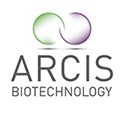Jul 12 2018
Malaria is a significant health issue, particularly across subtropical and tropical environments. This means that rapid diagnosis in anyone who is suspected to have the disease is of the upmost importance.
Typical diagnosis of malaria is carried out using microscopic analysis of blood films stained with Giemsa, which allows histopathological confirmation of the presence of the malaria parasites. However, such resources are not always available in remote settings, and thus alternative diagnostic methods are required. Alternatives include lateral flow tests which are easy to use, cost effective but have limitations on sensitivity and specificity
PCR for Malaria Detection
Polymerase Chain Reaction (PCR) is the standard technique for detection of the disease and has been well-described and validated by numerous research groups.
In recent years, PCR assays have been used to provide a molecular diagnosis of malaria by detecting and identifying the nucleic acids of the specific Plasmodium species that cause the disease.
This technique stands as a good alternative to microscopic diagnosis of malaria as it can be standardized and requires less experienced skill. These tests are normally carried out in a laboratory and issues still remain; sample collection, transportation, processing and dissemination of results can take a considerable amount of time which limits the usefulness of PCR in clinical practice.
Furthermore, this diagnostic technique is expensive and requires advanced technology, reducing its availability in environments with limited financial resources and inadequate laboratory infrastructures.
The Benefits of Reverse Transcription PCR
ARCIS-Biotechnology have developed a solution to this problem, with their commercial malaria Reverse Transcription Quantitative Polymerase Chain Reaction (RTqPCR) assay.
RTqPCR assay offers the same benefits as standard reference PCR in terms of its highly specific detection of parasitic mRNA from the blood, but with an even higher sensitivity. Furthermore, the all-in-one malaria detection kits under development by ARICIS provide improved ease of use and no need for experienced operators or sophisticated technology and could be incorporated into a microfluidic cartridge compatible with a point of care PCR for ease of use.
Research directly comparing the effectiveness of RTqPCR with standard qPCR confirm the overall benefits of using the ARCIS malaria kit to detect active disease. The RNA based protocol offers both a higher probability for positive detection of plasmodium and a lower probability of generating a false positive than both microscopic analysis and reference PCR- which may detect residual parasitic DNA in patients who no longer have active infection.
Overall, the excellent extraction performance, ease of use and cost effectiveness of RTqPCR assay suggests that this could be the new solution for molecular diagnosis of malaria in remote and resource-limited settings.
 About Arcis Biotechnology
About Arcis Biotechnology
Arcis Biotechnology is a research and development led company with expertise in the development and commercialization of a wide range of fast and convenient sample preparation technologies.
Based at Sci-tech Daresbury, where we have fully equipped laboratory facilities, the Group has already developed a number of patented compounds and technologies that have been enthusiastically received in the commercial marketplace via our licensing partners.
Arcis Biotechnology is focused on providing fast and convenient nucleic acid sample preparation solutions. Obtaining genetic material from biological samples is a critical step in molecular biology processes which is often time consuming and inefficient.
In less than 3 minutes with no prior sample preparation the Arcis Sample Prep range of products allow users to quickly and conveniently go from biological material to downstream nucleic acid investigation using PCR, qPCR, RT-qPCR or sequencing without the need for traditional isolation or purification.
Arcis DNA Isolation Video
The process requires no laboratory equipment and requires as little as 30 µl of blood as a starting material. Arcis products can be used on many different samples containing DNA or RNA including whole blood, plasma, urine, buccal swabs, hair follicles and microbiological samples including bacteria (E. coli, S. aureus, P. aeruginosa, K. pneumonia), viruses (HBV/ HCV) and parasites (plasmodium).
Sponsored Content Policy: News-Medical.net publishes articles and related content that may be derived from sources where we have existing commercial relationships, provided such content adds value to the core editorial ethos of News-Medical.Net which is to educate and inform site visitors interested in medical research, science, medical devices and treatments.